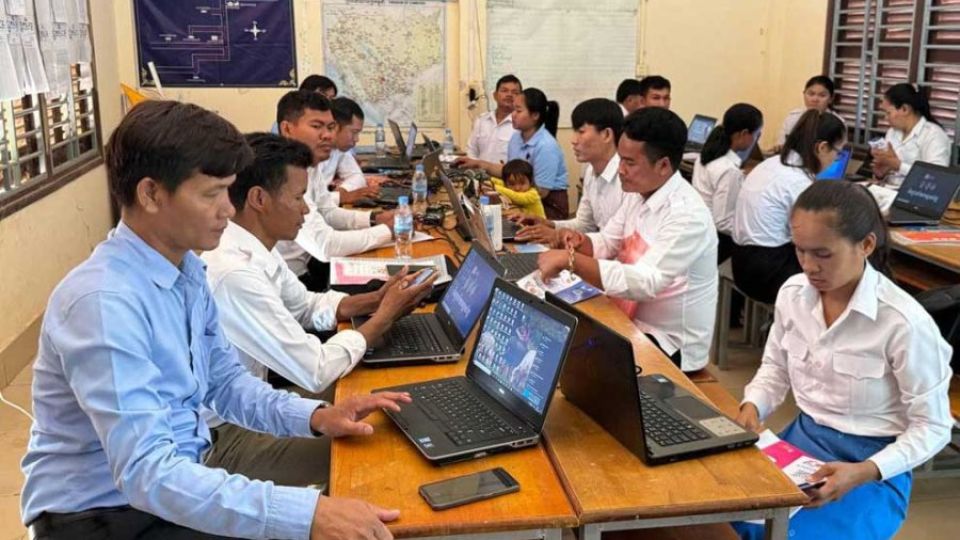March 22, 2024
PHNOM PENH – A new report from the ASEAN Foundation has found that 30 per cent of the Cambodian population possesses basic media and digital literacy skills, while 67.5 per cent of the population has internet access.
The report, released on March 20, found that the Kingdom faces a significant digital literacy gap, in spite of its rapid adoption of digital technology.
“While internet and mobile phone penetration rates are high [67.5 per cent have internet access], only 30 per cent of Cambodians possess basic media and digital literacy skills,” the foundation said in a March 20 press release.
The report highlighted that ethnic minority groups in particular face challenges because of limited digital skills and sources of reliable information, exacerbating the digital divide.
It showed that despite 62.2 per cent of the population demonstrating high critical thinking abilities, education plays a significant role in determining Cambodian individuals’ abilities to handle information effectively.
The findings highlight the necessity of tailored digital literacy initiatives to address the diversity of needs among Cambodian communities, explaining that this will allow them to gain full benefit from the digital economy while also countering misinformation in an effective manner.
The report underscored that levels of critical thinking and privacy protection competence vary widely across ASEAN member states. Notably, Thailand exhibited the lowest percentage of individuals with high critical thinking skills, at 25 per cent, contrasting with neighbouring Cambodia’s impressive 62.2 per cent.
It added that the Philippines is behind in privacy protection competence, with only 17.42 per cent of individuals possessing high competence, while Singapore excels, with 54.37 per cent.
The ASEAN Foundation, with support from Google.org – the charitable arm of tech giant Google – revealed the findings during the “ASEAN Regional Symposium: Unveiling Insights into the Region’s Digital Literacy”, which took place on March 20 in Bangkok, Thailand.
Titled “One Divide or Many Divides? Underprivileged ASEAN Communities’ Meaningful Digital Literacy and Response to Disinformation”, the study explores the digital engagement of underprivileged ASEAN communities.
It examined their experiences, knowledge, skills and responses to disinformation, in order to establish a baseline understanding of the role of digital literacy in recognising and responding to disinformation within these communities.
ASEAN Foundation executive director Piti Srisangnam explained that the foundation had invited several strategic stakeholders to discuss the report and its findings, adding that the report involved quantitative survey and qualitative data collection from all 10 ASEAN member states.
“We are presenting it at this symposium so attendees can listen to insights and recommendations from each member country and conduct in-depth discussions with our country researchers,” he said.
“We hope this research will help bridge the digital divide in the ASEAN region and create a more inclusive and safer digital space,” he added.
Marija Ralic, lead for Google.org Asia-Pacific, noted Google’s support for the foundation’s efforts to empower people across the region with crucial media literacy skills.
“Our dedication to fostering digital safety aligns perfectly with the ASEAN Foundation’s mission to empower ASEAN communities through digital literacy. This will contribute to a digitally resilient ASEAN,” he said.


